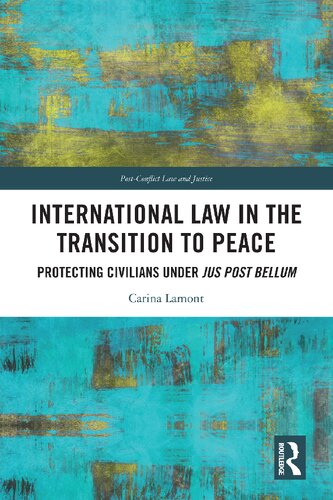

Most ebook files are in PDF format, so you can easily read them using various software such as Foxit Reader or directly on the Google Chrome browser.
Some ebook files are released by publishers in other formats such as .awz, .mobi, .epub, .fb2, etc. You may need to install specific software to read these formats on mobile/PC, such as Calibre.
Please read the tutorial at this link: https://ebookbell.com/faq
We offer FREE conversion to the popular formats you request; however, this may take some time. Therefore, right after payment, please email us, and we will try to provide the service as quickly as possible.
For some exceptional file formats or broken links (if any), please refrain from opening any disputes. Instead, email us first, and we will try to assist within a maximum of 6 hours.
EbookBell Team

5.0
100 reviewsThis book proposes a normative framework specifically designed for the complex and legally uncertain time period between armed conflicts and peace. As such, it contributes both to the furthering of a jus post bellum framework, and to enhanced legal clarity in complex and legally uncertain environments. This, in turn, contributes to strengthened protection engagements, and thus to improved prospects of enabling sustainable peace and security in both national and international perspectives.
The book offers a novel but persuasive argument for a legal framework specific for transitional environments. Such legal framework, it is argued, is warranted in order to enable legal clarity to contemporary and outstanding legal issues, as well as to furthering peace efforts in complex environments. The legal framework suggested proposes a dividing line between applicable legal frameworks that, it is submitted, enhances both legal clarity on protection engagements and the quest for sustainable peace. The framework proposed is founded on a legal analysis of the protective nature and function of law. It thus provides a rare but important perspective on law that is of value in the quest for sustainable peace and security. The research draws uniquely on both contemporary legal debates, and on peace and conflict research. It does so in order to enable legal analysis that is both legally sound, as well as appropriate and adequate in today’s peace and security realities.
The book provides a valuable resource for academics, researchers and policy-makers in the areas of Public International Law, International Humanitarian Law, International Human Rights Law, (the law of) Peace Operations, and Peace and Security Studies.